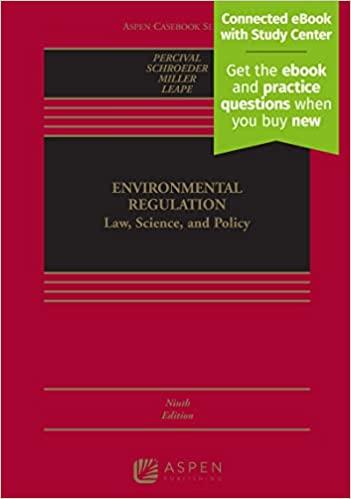Question
Malbur is a big box discount chain that competes with Walmart and Target. Malbur has conducted extensive research over how susceptible its potential customers are
Malbur is a big box discount chain that competes with Walmart and Target. Malbur has conducted extensive research over how susceptible its potential customers are to advertising, and how likely an advertisement will drive customers to change stores. Malbur's research reveals that store loyalty is very "sticky." People are unlikely to change stores except at significant life-change moments. The most likely life changing opportunity for a store looking to bring in new customers is the birth of a child. But Malbur's research also finds parents with new babies are too busy to pay attention to advertising. Malbur has concluded the key is to identify women who are about to give birth and advertise to them heavily in the months before the baby is born.
Malbur's demographers and statisticians conducted an extensive research program and found that pregnant women show distinct purchasing patternsthey tend to shift to cosmetic products with fewer fragrances, they purchase bland crackers, etc. Malbur developed a predictive statistical formula that identifies these women in its customer base. It has produced a software application that employs the statistical formula to "tag" their customer IDs with a particular probability of pregnancy. The application has proven to be extremely accurate, sometimes even identifying women as potentially pregnant before they know it themselves. The CEO of Malbur is excited by the software and believes he can market it to advertisers across the United States. Malbur is considering whether to attempt to patent the invention.
- Is the formula as implemented in the software patentable subject matter?
- The current draft of the patent application states as the utility "a software program to accurately identify women who may be particularly good advertising targets."
- Does this satisfy the utility requirement under 35 U.S.C. 101? Consider the advice of the Court of Appeals of the Federal Circuit: the invention must have "a significant and presently available benefit to the public" and "a use which is not so vague as to be meaningless." In re Fisher, 421 F.3d 1365 (Fed. Cir. 2005).
- Do you have suggested drafting changes to help the application meet the utility requirement?
III. The draft application includes the following claim: "We claim as our invention - 1. A software program using an algorithm to target advertisements to certain consumers using a data to determine when to whom advertisements will be displayed..."
- Does this claim sufficiently disclose the invention?
- Do you have any suggested drafting changes to help the application meet the disclosure requirement?
Step by Step Solution
There are 3 Steps involved in it
Step: 1

Get Instant Access to Expert-Tailored Solutions
See step-by-step solutions with expert insights and AI powered tools for academic success
Step: 2

Step: 3

Ace Your Homework with AI
Get the answers you need in no time with our AI-driven, step-by-step assistance
Get Started


